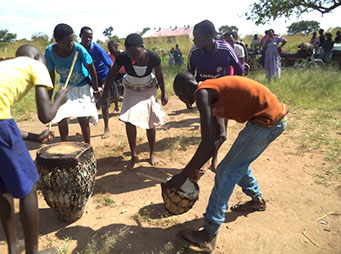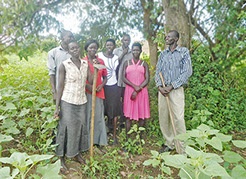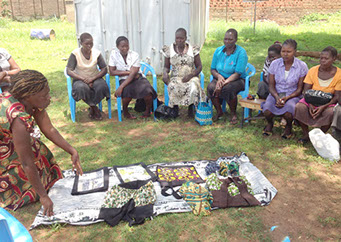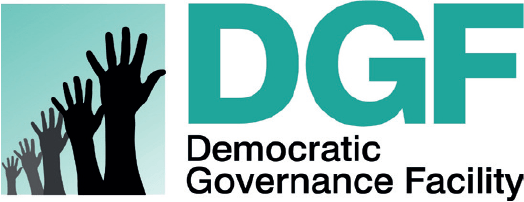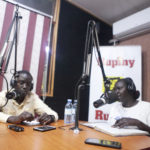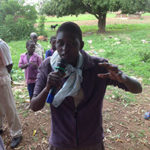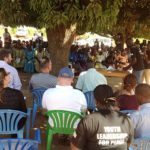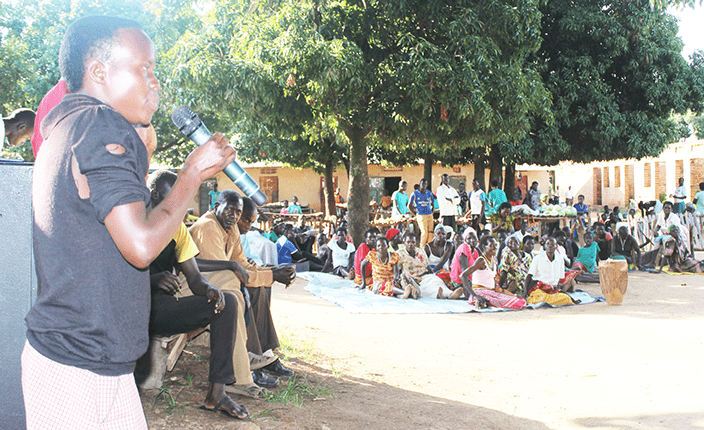Youth emerging as Leaders and Game changers for Peace and Reconciliation
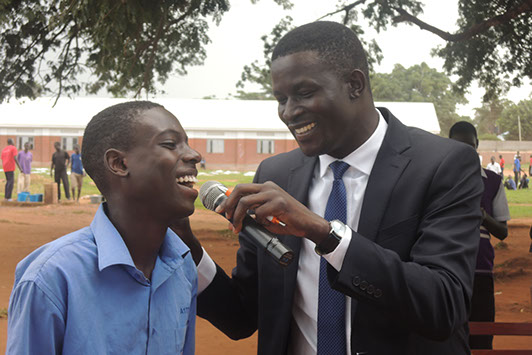
The youth are undeniably a key force in achieving peaceful communities and forming paths to post-conflict recovery. Despite this, they are often not only victims of crime but also perpetrators of violent crime. One of the main reasons for their involvement in criminal activity is poverty, which is a destructive consequence of the war.
In addressing this challenge, AYINET continues to mobilize and empower youth to become credible leaders within their communities, with involvement in areas of social transformation, peace and justice. AYINET actively engages young people by way of; youth leadership trainings, peace symposiums, radio talk shows, school and community outreaches.
The activities are within a framework of the project “Engaging and Empowering Youth as Leaders, Youth at Risk, Youth as Game Changers for Peace and Reconciliation,” supported by USAID through Supporting Access to Justice, Fostering Equity and Peace (SAFE).
The youth are given opportunities to gain skills which help them become better leaders, problem solvers and peace builders. They then share the lessons and acquired skills with their wider communities and network of established youth groups in their respective communities.
“These activities influence our attitude. We strive toward living in a peaceful community and keep encouraging other youths to participate in activities that have the potential to improve their productivity and their social and economic well being, while also reducing the overall level of poverty.” Omach Justice, Secretary of the Paluo-Oribe youth group in Gulu
Youths are trained in Peace building, conflict mitigation and transformative development to ensure sustainable growth. Empowered, they move on to demonstrate in their communities depending on their interests. The majority of the youth groups engage in agriculture along with other Income Generating Activities, Voluntary Savings and Loan Associations (VSLAs), Arts, Music and Drama, Health reachouts and Sports as avenues to build sustainable peace in families and whole communities
Agriculture

Many youth groups are involved in the different forms of agriculture such as piggery, goat rearing, bee keeping, tree planting, poultry farming, subsistence farming, and communal farming. This is done with the aim of raising food as a means of livelihood, as well as raising money to support their family basic needs. Groups involved in agriculture include Amach Youth in Development Group Amach Sub-county, Okile New Hope in Agali Sub-county in Lira and Anyim Mabere in Uyama Sub-county Yele Ber Youth Group in Awach Sub-county, and Watayo Youth Group in Bardege Sub-county Gulu district.
Health groups
Several youth groups have been established in order to implement activities, which include psychosocial support programs and sensitization regarding HIV and reproductive health. Activities are carried out in schools and the respective communities. They encourage positive changes of behaviour, in particular promoting healthy sexual behaviour. Some of the groups focusing on health are Paluo-Oribe Iteko in Bobi Sub-county (Gulu), Tampi Diki in Palaro Sub-county (Gulu) and Facilitation for Youth in Development in Adekokwok Sub-county (Lira), Lalogi youth friendly sevices, Awach straight talk club, and the Koro youth group.
Art, Music and Drama
Youth groups use art as to inspire positive behavior changes on peace building. The art forms include traditional folk songs, drama, dances, skits, and poems. The chosen art forms demonstrate the youths’ attachment to their culture and the importance of traditional institutions, as well as the role of art and culture in discovering a national identity. Art for peace has been embraced by most youth groups, including Rwot Lakica in Lakwana Sub-county (Gulu), Ribe Ryemo Can in Palaro Sub-county (Gulu), Lalogi Youth Friendly in Lalogi Sub-county (Gulu), Art Forms (Lira), Never Give Up in Adyel (Lira) and Nen Anyim in Ogur Sub-county (Lira).
Sports

Sports is fun, recreational and not only promotes physical well-being, but also builds team spirit and, in a wider sense, solidarity. Sports helps people from different communities come together and develop better understanding of each other facilitating reconciliation. Youth groups such as Lalogi United Youth Group in Lalogi Sub-County Warib-cing Youth Group in Nwoya, Ongako One Stop Youth Group in Ongako Sub-county in Gulu, Okonyere Kenwa Youth group in Agweng, Aromo Youth Group in Aromo Sub-county, Bango Bango Moko in Ngetta Sub-county in Lira.
Income generating activities
As independence and progress are difficult to imagine when one has an empty pocket, youth groups have also embraced income generating activities such as brick making, weaving, and small scale entrepreneurship. A continued progress in the standard of living achieved by self-initiative, builds confidence, and promotes productivity. All the groups are engaged in Income Generating As within their communities.
VSLA (Voluntary Savings and Loan Associations)
Many groups are increasingly getting involved in Voluntary Savings and Loan Associations (VSLAs) at the village level in order to enable them to save and borrow money within their community for personal development. This enables them to have access to small capital to start up small retail personal business. Many groups such as Hope Alive Youth Group in Adyel Sub-county, Abunga Youth Group in Barr Sub-county, Adag Woo Child Mothers Youth Group in Aromo Su-bcounty and Min Bot Lubanga Youth Group Patiko Sub-county, Okum Goro Youth Group in Paicho Sub-county, and Ribe Ryemo Can in Koro Sub-county in Gulu district.
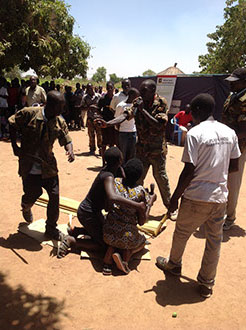
The established youth groups have contributed successfully to bringing up peace builders who work toward bridging the gaps caused by the post war experience. These established structures are deeply involved in different activities that aim at peace building and community development. This youth engagement also clearly demonstrates the role young people play in peace building as they lead by example and help others to understand the aspect of peace and reconciliation.
